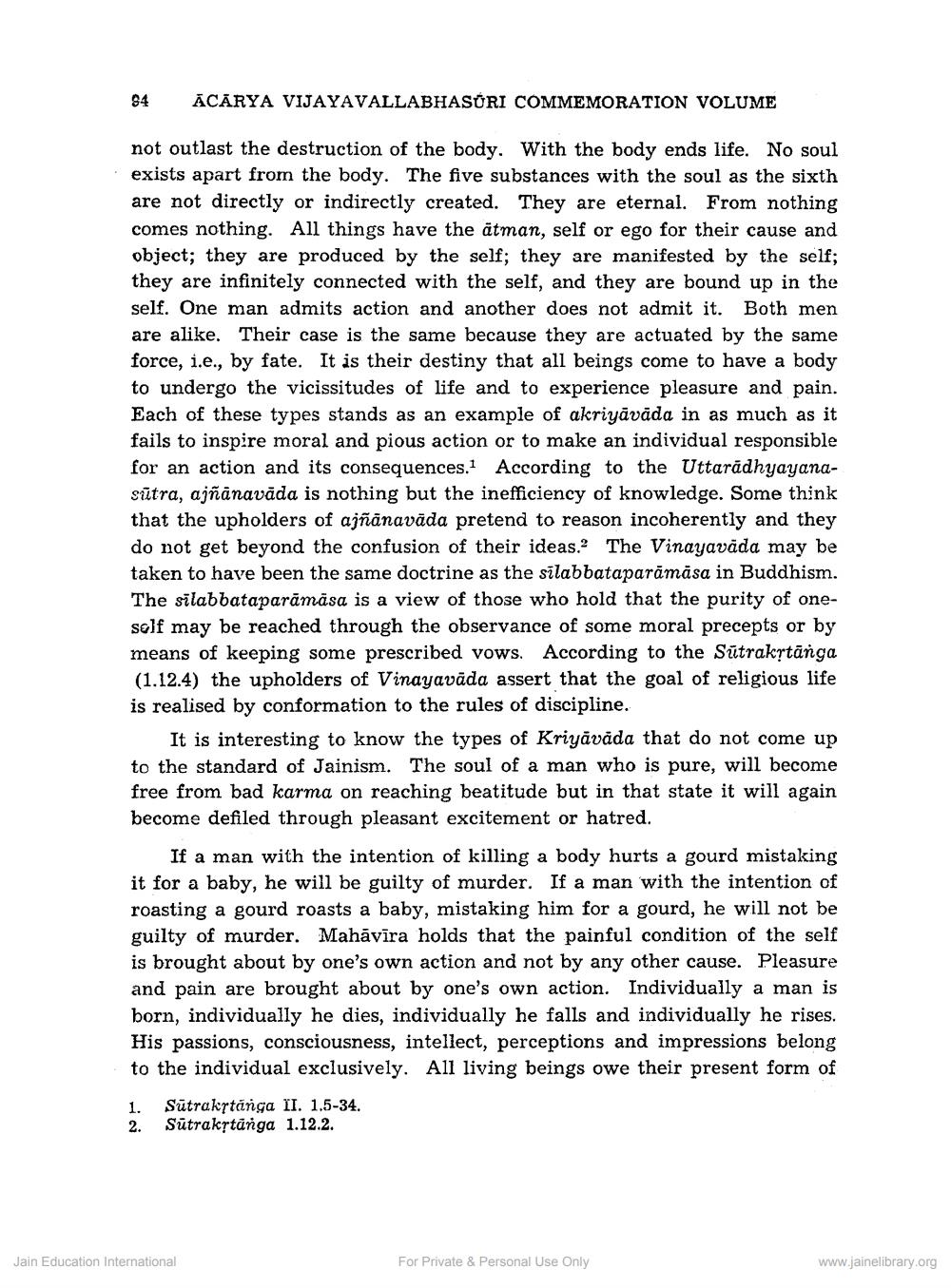Book Title: Fundamental Principles of Jainism Author(s): B C Law Publisher: Z_Vijay_Vallabh_suri_Smarak_Granth_012060.pdf View full book textPage 8
________________ 84 ACĀRYA VIJAYAVALLABHASÚRI COMMEMORATION VOLUME not outlast the destruction of the body. With the body ends life. No soul exists apart from the body. The five substances with the soul as the sixth are not directly or indirectly created. They are eternal. From nothing comes nothing. All things have the atman, self or ego for their cause and object; they are produced by the self; they are manifested by the self; they are infinitely connected with the self, and they are bound up in the self. One man admits action and another does not admit it. Both men are alike. Their case is the same because they are actuated by the same force, i.e., by fate. It is their destiny that all beings come to have a body to undergo the vicissitudes of life and to experience pleasure and pain. Each of these types stands as an example of akriyāvāda in as much as it fails to inspire moral and pious action or to make an individual responsible for an action and its consequences. According to the Uttaradhyayanasūtra, ajñanavāda is nothing but the inefficiency of knowledge. Some think that the upholders of ajñānavāda pretend to reason incoherently and they do not get beyond the confusion of their ideas. The Vinayavāda may be taken to have been the same doctrine as the silabbataparāmāsa in Buddhism. The silabbataparāmäsa is a view of those who hold that the purity of oneself may be reached through the observance of some moral precepts or by means of keeping some prescribed vows. According to the Sūtrakytānga (1.12.4) the upholders of Vinayavāda assert that the goal of religious life is realised by conformation to the rules of discipline. It is interesting to know the types of Kriyavāda that do not come up to the standard of Jainism. The soul of a man who is pure, will become free from bad karma on reaching beatitude but in that state it will again become defiled through pleasant excitement or hatred. If a man with the intention of killing a body hurts a gourd mistaking it for a baby, he will be guilty of murder. If a man with the intention of roasting a gourd roasts a baby, mistaking him for a gourd, he will not be guilty of murder. Mahāvīra holds that the painful condition of the self is brought about by one's own action and not by any other cause. Pleasure and pain are brought about by one's own action. Individually a man is born, individually he dies, individually he falls and individually he rises. His passions, consciousness, intellect, perceptions and impressions belong to the individual exclusively. All living beings owe their present form of 1. 2. Sūtrakrtănga II. 1.5-34. Sūtrakstānga 1.12.2. Jain Education International For Private & Personal Use Only www.jainelibrary.orgPage Navigation
1 ... 6 7 8 9 10 11 12 13 14 15 16 17 18 19 20 21 22 23 24 25 26 27 28 29 30 31 32 33 34 35
